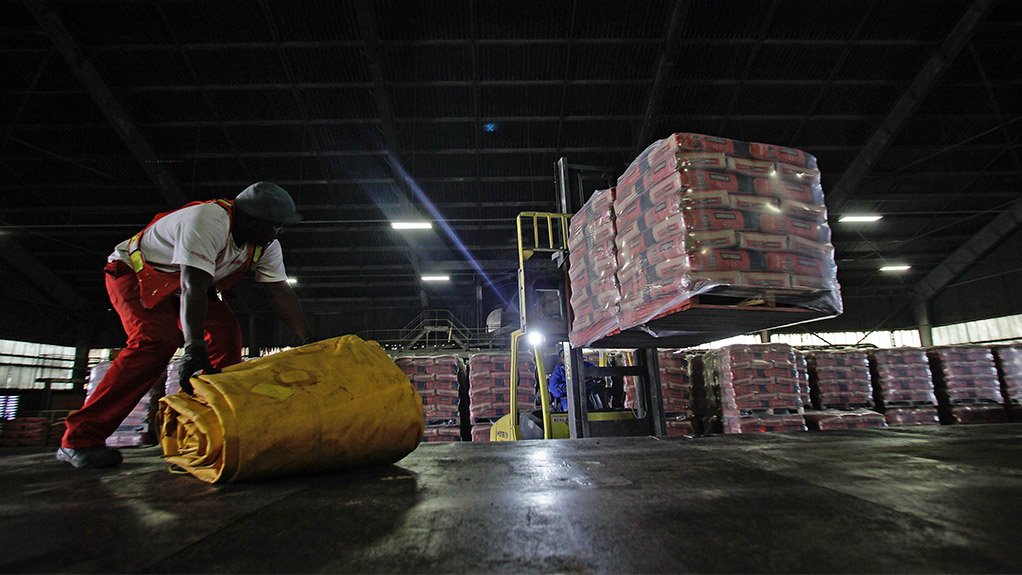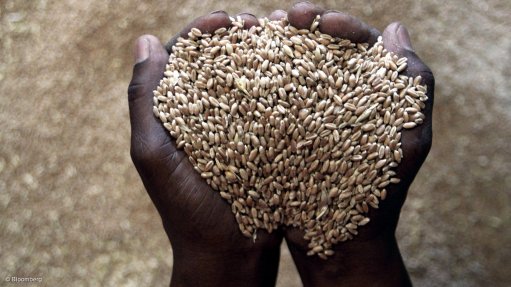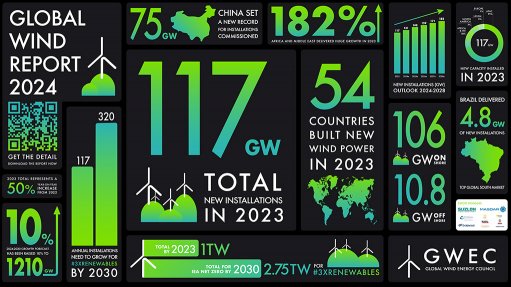New cement production capacity in Africa might be preferable to high transport costs
The rapidly rising cost of transport means that adding additional cement production capacity in Africa might be worth considering going forward.
Before the outbreak of Covid-19, a long-term decline in shipping costs and the relative price of imported cement, which was also expected to gradually fall, had eroded the rationale for adding more cement production capacity in Africa, Gordon Institute of Business Science Centre for Africa markets and management research associate Francois Fouche said at the African Smart Cities Summit, in Midrand, on June 8.
However, a “massive reversal” of transport costs meant that perhaps these previously held views should be reconsidered, he stated.
“Cement has a low value to weight ratio, which makes land transport significantly more expensive than if you were to do it by sea. Pre-pandemic, it was cheaper to cross the Atlantic Ocean with 35 000 t of cement than it was to transport it 300 km by truck.
“However, the cost of moving goods by sea has changed significantly,” he said.
Africa has long been a net importer of cement, with domestic demand outstripping supply in most countries.
Fouche said Africa accounted for about 10% of global cement exports, but more than double that in terms of global cement imports.
Fouche explained that supply and demand pressures are attributed to very high prices and a distortion of prices, especially in the landlocked, Central African regions. He said the World Bank had estimated that a 50 kg bag of cement cost about $10 in the Democratic Republic of Congo, compared with an average of about $3 elsewhere in the world.
With the transport of cement accounting for about 10% of the cost, and the African Continental Free Trade Area (AfCFTA) seeking to minimise or even eliminate cross-border trade tariffs, it is not entirely clear how these developments will affect the supply and price of cement in landlocked Central African countries.
“The AfCFTA has been a disappointment from an implementation point of view. One of the great mistakes is to judge policies and programmes by their intentions rather than their results,” Fouche said.
Comments
Press Office
Announcements
What's On
Subscribe to improve your user experience...
Option 1 (equivalent of R125 a month):
Receive a weekly copy of Creamer Media's Engineering News & Mining Weekly magazine
(print copy for those in South Africa and e-magazine for those outside of South Africa)
Receive daily email newsletters
Access to full search results
Access archive of magazine back copies
Access to Projects in Progress
Access to ONE Research Report of your choice in PDF format
Option 2 (equivalent of R375 a month):
All benefits from Option 1
PLUS
Access to Creamer Media's Research Channel Africa for ALL Research Reports, in PDF format, on various industrial and mining sectors
including Electricity; Water; Energy Transition; Hydrogen; Roads, Rail and Ports; Coal; Gold; Platinum; Battery Metals; etc.
Already a subscriber?
Forgotten your password?
Receive weekly copy of Creamer Media's Engineering News & Mining Weekly magazine (print copy for those in South Africa and e-magazine for those outside of South Africa)
➕
Recieve daily email newsletters
➕
Access to full search results
➕
Access archive of magazine back copies
➕
Access to Projects in Progress
➕
Access to ONE Research Report of your choice in PDF format
RESEARCH CHANNEL AFRICA
R4500 (equivalent of R375 a month)
SUBSCRIBEAll benefits from Option 1
➕
Access to Creamer Media's Research Channel Africa for ALL Research Reports on various industrial and mining sectors, in PDF format, including on:
Electricity
➕
Water
➕
Energy Transition
➕
Hydrogen
➕
Roads, Rail and Ports
➕
Coal
➕
Gold
➕
Platinum
➕
Battery Metals
➕
etc.
Receive all benefits from Option 1 or Option 2 delivered to numerous people at your company
➕
Multiple User names and Passwords for simultaneous log-ins
➕
Intranet integration access to all in your organisation





















